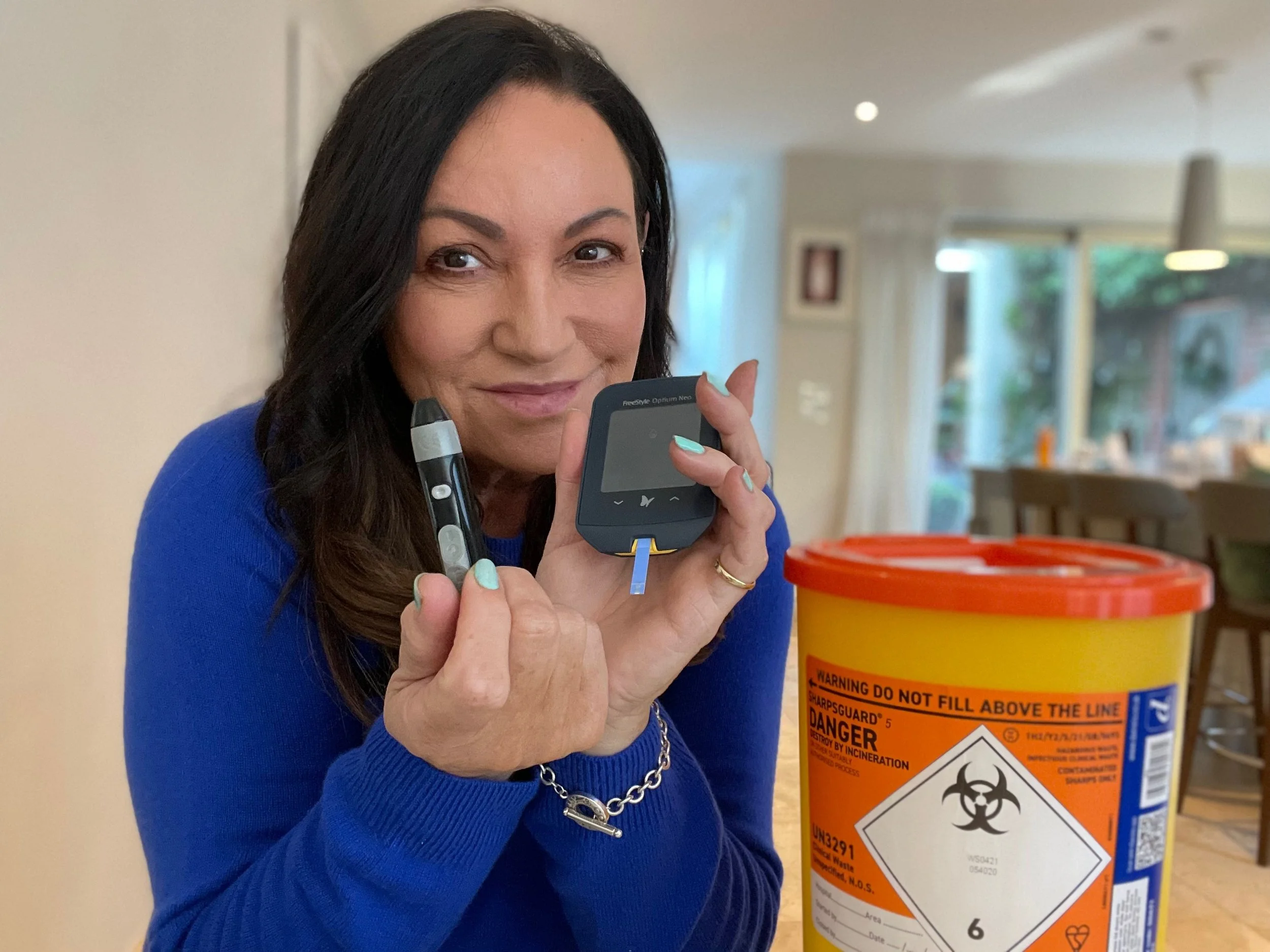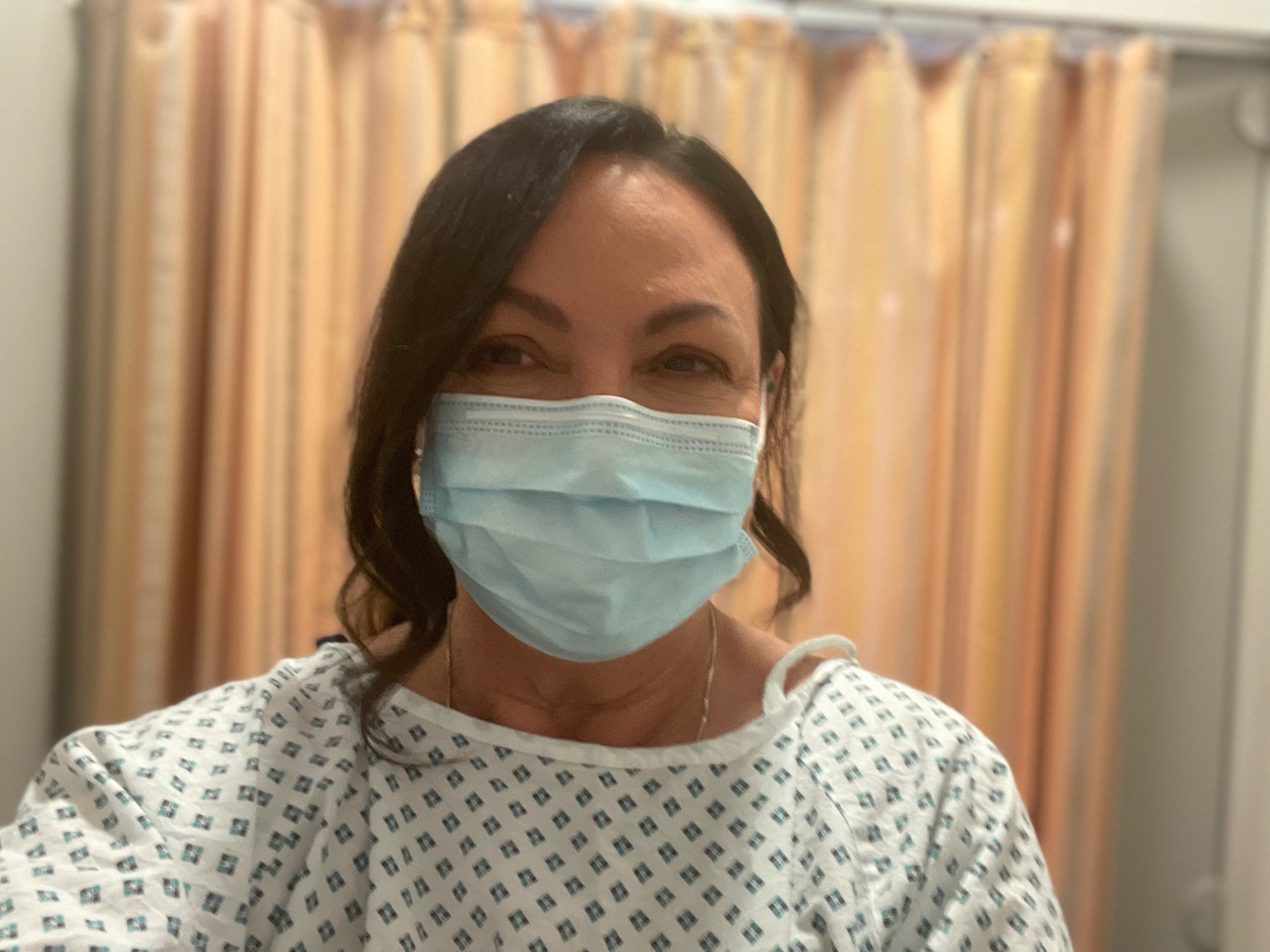Life After Covid
Norah Casey recounts her own experience of long covid after a fairly mild infection with Omicron earlier this year.
Here I am a newly diagnosed Type 1 Diabetic. It has taken a while to process the sudden onset of a condition that is normally detected in childhood. I am a relentlessly positive person, to an annoying extent sometimes, but my Pollyanna tendencies have been somewhat dented since covid. I had very mild covid in early January, I even bragged about it being like a bad cold. I worked through it and although I found myself heading to bed earlier that week, I was otherwise ok (and relieved that it was so mild).
About four weeks later, I began to feel unwell. I couldn’t pinpoint what was wrong because a whole raft of seemingly unrelated symptoms were hitting me. I went to my GP (who I hadn’t seen for two years - just to prove I was fit and healthy prior to all this) and explained what I was feeling… nausea, terrible headaches, breathlessness, jelly legs (best description I could some up with), heart palpitations, dizziness and the shakes.
When she took my blood pressure it was critically high - stroke territory she said. That set off a series of monitoring and blood tests and I was admitted to hospital a few days later feeling really unwell. Fairly quickly the consultants felt it was long-covid (or post-covid) because I had inflammation in my lungs and was going through a metabolic crisis. It was like someone was playing ping pong with various organs in my body. After two brain MRIs, ultrasounds and a whole raft of tests and monitoring, it seemed obvious that something unusual was happening. For instance, my blood pressure which was sky high for days (even while I slept) suddenly dropped to its usually low level. The clinical team felt that some of these acute symptoms would not linger beyond three to six months. And for the most part they were right. Since then, lots of my heart problems have settled, my lungs are improving. My heart still gallops on occasion and some days I am very tired. My taste buds have gone askew (particularly when it comes to red wine - go figure!) I get some brain fog - especially if I have to talk too much or concentrate. I am a much better listener now. I also have developed a bit of anxiety. It is not that I’m super confident usually, far from it, but things I used to do without too much stress like public speaking or doing radio or TV have been triggering a few jitters and it doesn’t help that I shake quite a bit and my mouth goes dry.
But, by far the worst legacy of covid is that I have been left with Type 1 diabetes - which is permanent and insulin dependent, rare in later life. I have high levels of autoimmune antibodies that have eaten (technical term) the insulin cells in my pancreas. So there is no reversal. As I started to do more over the past month, I found myself spending equal amounts of time in bed between things. One day last week I had three events and had to return to sleep for an hour in between each one.
My blood sugars have been all over the place - sometimes very high, and I put on loud music and dance like a mad thing in the kitchen to get them down. In the last few weeks it started to go low. I’ve had a few worrying hypo attacks – most especially on an Aer Lingus plane recently where I was sure I would pass out. A wonderful woman who was a member of the cabin crew saw immediately I was in distress - she has a daughter with type 1 diabetes and she knew what to do. I am hugely grateful to her.
So now I need to get out of my own head about these sudden changes to my life and accept it and learn to live with it. As I am all too well aware there are far worse things - it really isn’t even in the ha’penny place compared to other’s misfortune. And I am only telling my story because so many people have shared with me their own post-covid symptoms - it really is in the early days. There are lots of studies coming out about a myriad of symptoms and I guess it will take some time to find out more. In the meantime swapping stories and sharing experiences seems to me to be quite a good thing.
Covid and Diabetes
Last year a cohort of scientists (350) from across the world believed that there was a growing body of evidence that covid can cause diabetes in some patients - both Type 1 and Type 2.
Leading the call for a fuller exploration of the possible link between the two is Prof Francesco Rubino, from King’s College London. “Having seen a rise in both Type 1 and Type 2 diabetes in people who have caught coronavirus, some doctors are even considering the possibility that the virus, by disrupting sugar metabolism, could be inducing an entirely new form of diabetes”, he told The Guardian.
Rubino and others set up a registry to start pooling and analysing cases of covid-induced diabetes and he believes the numbers are hard to ignore. “Over the last few months, we’ve seen more cases of patients that had either developed diabetes during the covid experience, or shortly a‑ er that. We are now starting to think the link is probably true – there is an ability of the virus to cause a malfunctioning of sugar metabolism,” he said. Further Dr Sathish Thirunavukkarasu, at Canada’s McMaster University, conducted a review of eight studies from different countries from the first five months of the pandemic and found a combined 492 cases of newly diagnosed diabetes among 3,711 hospitalised covid patients.
WHAT IS POST-COVID?
The World Health Organisation describes it as follows…
“Post-covid condition occurs in individuals with a history of probable or confirmed SARS CoV-2 infection, usually 3 months from the onset of covid with symptoms that last for at least two months and cannot be explained by an alternative diagnosis.
Common symptoms include fatigue, shortness of breath, cognitive dysfunction but also others and generally have an impact on everyday functioning. Symptoms may be new, onset following initial recovery from an acute covid episode or persist from the initial illness. Symptoms may also fluctuate or relapse over time”
Dr Janet Diaz, the WHO's Clinical Lead for covid outlined the most common symptoms, including “shortness of breath, cognitive dysfunction, which people call brain fog, as well as fatigue. Those are the three most common”.
However, she also cites “more than 200 symptoms that actually have been reported in patients”. Other symptoms include “chest pain, trouble speaking, some have described anxiety or depression, muscle aches, fever, loss of smell, loss of taste”.
POST-COVID IN IRELAND
Ireland's first online long-covid hub was launched last September by the Irish Society of Chartered Physiotherapists (ISCP).
However, the ISCP has publicly expressed concern that so much of Ireland was not covered by long-covid clinics. ISCP’s professional adviser, Esther Mary D’Arcy pointed out that physiotherapists were seeing people in need of rehab – some needing help with breathlessness while others had to learn to walk again or sit up by themselves. But there are woefully few long covid clinics in Ireland and, as D’Arcy pointed out, “every one of the 32 boroughs in London has a long-covid clinic… The advantage of having a dedicated clinic, for a syndrome with 200 associated symptoms, is that a patient’s needs are assessed and no one gets lost in the system”.
While the exact numbers of people who develop long covid is unknown, experts estimate it is around 10 per cent. And it is too early to determine whether Omicron, which is milder and more widespread, will lead to the same levels or higher. My own consultant is Prof Seamus Linnane who set up a long-covid clinic at the Beacon Hospital in Dublin. He told the Irish Times that he was “an optimist by nature” but that it was difficult to predict a pattern.
“That is the worry about Omicron and that is the great unknown,” he said.
At the time there were 1.2 million cases of covid in Ireland (it is now over 1.5m), and the prospect of 10 per cent of those numbers presenting with something as complex and unpredictable as long covid is a frightening scenario.
“If we suddenly have 10 per cent of over one million people needing a clinic, I do not know how one goes about that,” he said.
“Because as it is we are struggling to provide the non-covid care.







